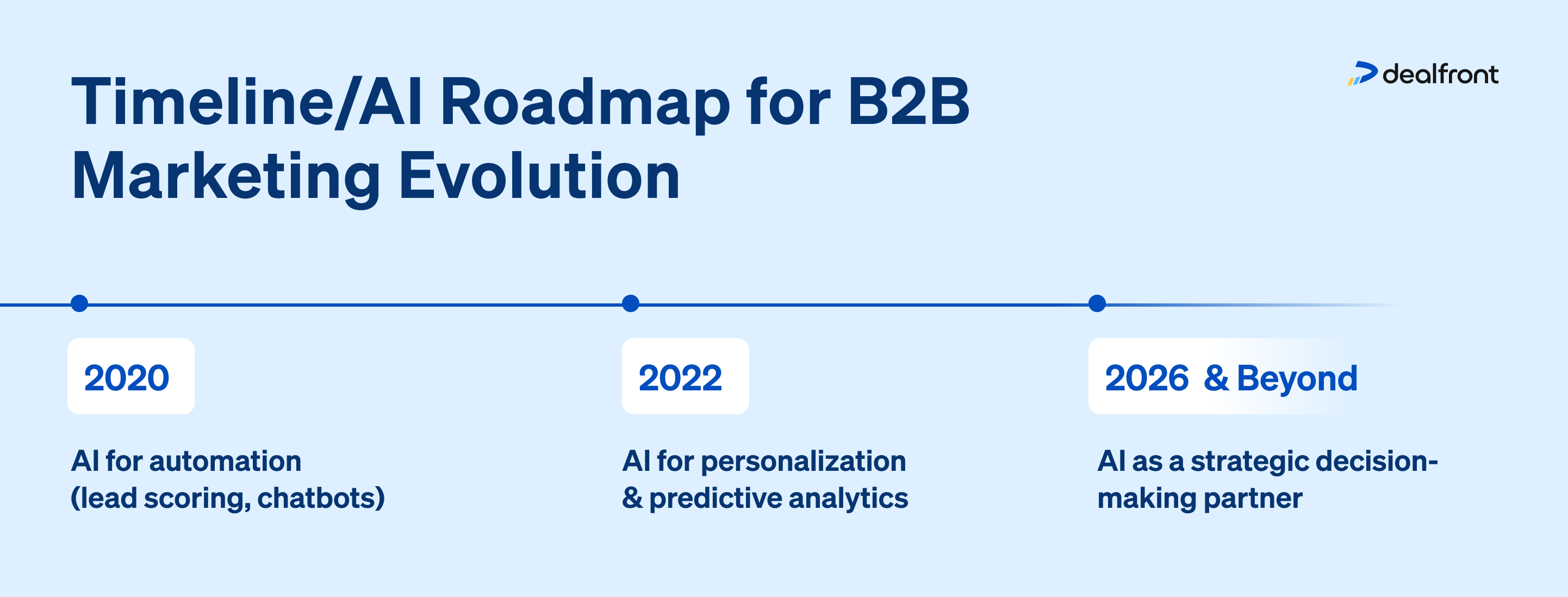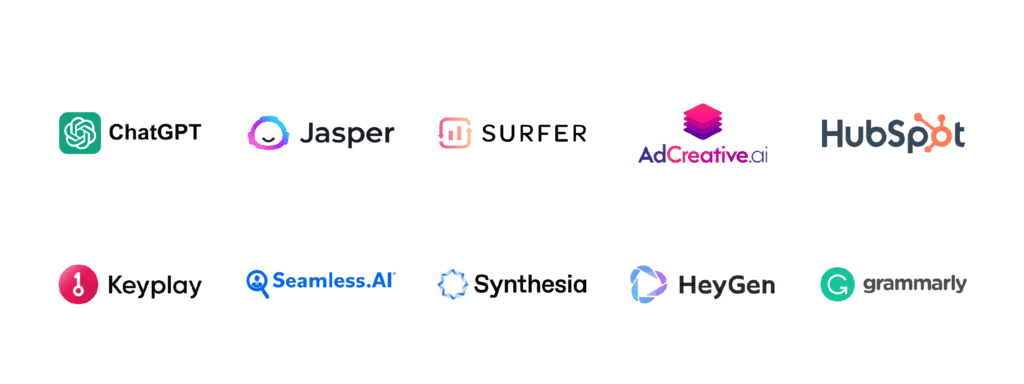Top methods for implementing AI Automation For B2B effectively
Open Effectiveness and Growth With AI Automation for B2B Companies
AI automation is changing the landscape for B2B business. It simplifies operations and minimizes dependence on human treatment. This shift permits services to make quicker, data-driven decisions. As companies discover which refines to automate, they must additionally consider the right devices to carry out. Obstacles stay in embracing AI technology. The effects of these adjustments might shape the future of several firms in methods yet to be fully recognized
Comprehending AI Automation in the B2B Context
As companies significantly look for efficiency, recognizing AI automation in the B2B context ends up being important. AI automation entails utilizing advanced innovations to improve procedures, reduce human treatment, and enhance decision-making processes. In the B2B landscape, this can materialize in various types, such as automating customer care interactions, taking care of supply chain logistics, or optimizing advertising and marketing campaigns. Firms can leverage AI to examine huge datasets promptly, enabling them to recognize trends and understandings that educate tactical selections. Additionally, AI systems can incorporate seamlessly with existing modern technologies, providing a natural system for managing organization functions. This understanding lays the groundwork for companies to explore just how AI can transform their operations, enhance performance, and ultimately foster lasting development in a competitive market.
Secret Advantages of Applying AI Automation

Identifying Procedures Ideal for Automation

Picking the Right AI Tools for Your Service
When B2B firms consider automating their procedures, picking the right AI tools comes to be vital for accomplishing wanted results. Business need to start by examining their unique demands and objectives, making sure alignment with organization goals (Minarik AI). Evaluating the integration, scalability, and adaptability capacities of prospective devices is vital, as these elements determine long-lasting performance. Organizations ought to additionally consider user-friendliness and the level of support provided by suppliers, as these elements can influence successful implementation. In addition, evaluating customer evaluations and instance studies can provide insights into how specific AI remedies perform in real-world scenarios. By carefully choosing AI tools that fit their operational demands, B2B business can enhance efficiency and drive growth while reducing potential disruptions
Conquering Difficulties in AI Adoption
B2B companies often encounter significant obstacles in taking on AI modern technologies, specifically problems associated to data quality and resistance to change monitoring. Poor information high quality can hinder the effectiveness of AI systems, while staff member unwillingness to accept new procedures can delay execution efforts - AI Automation For B2B. Addressing these obstacles is necessary for successful AI integration and optimizing its prospective benefits
Information High Quality Issues
Guaranteeing high information high quality is essential for the effective adoption of AI modern technologies in business-to-business settings. Incorrect, incomplete, or out-of-date data can severely impede AI efforts, leading to wrong insights and inadequate decision-making. Business frequently encounter difficulties such as information silos, disparities throughout different resources, and a lack of standard data layouts. To overcome these issues, companies must spend in information cleansing, integration, and administration procedures. Executing robust information administration techniques guarantees that the details fed into AI systems is reliable and appropriate. Fostering a culture of data top quality recognition amongst employees can improve data precision over time. By addressing information high quality problems, B2B companies can release the full capacity of AI automation, driving performance and development.
Change Management Resistance

Gauging the Effect of AI Automation
Determining the influence of AI automation in B2B firms calls for a clear understanding of vital performance indicators (KPIs) that straighten with organization goals. Effective information analysis techniques are essential for interpreting the results, while robust ROI assessment techniques aid identify the economic benefits of automation initiatives. With each other, these components give a considerable framework for reviewing AI's contributions to business success.
Key Efficiency Indicators
Trick performance indications (KPIs) work as crucial tools for B2B firms to evaluate the performance of AI automation initiatives. By developing clear metrics, organizations can determine renovations in operational effectiveness, price reduction, and profits development directly attributable to automation. Typical KPIs consist of cycle time reduction, error prices, customer contentment scores, and staff member performance levels. These signs give insights into exactly how AI systems are optimizing processes and improving total efficiency. Additionally, tracking KPIs allows business to recognize locations for further improvement and to line up AI automation efforts with critical organization objectives. Ultimately, a well-defined framework of KPIs guarantees that B2B business can quantitatively examine the influence of AI automation on their procedures and Discover More drive continual development.
Information Evaluation Strategies
Reliable information evaluation strategies play an essential role in assessing the impact of AI automation within B2B companies. By utilizing statistical methods, organizations can identify fads and patterns in functional information, permitting them to examine the performance gets accomplished with automation. Methods such as regression analysis and time series projecting give understandings right into exactly how AI-driven processes influence productivity and decision-making. In addition, information visualization devices can successfully interact findings to stakeholders, helping with informed tactical choices. Machine understanding formulas can even more enhance evaluation by forecasting future end results based upon historic data, offering workable insights. Ultimately, these strategies allow B2B companies to gauge success and enhance their AI automation initiatives, making certain positioning with company purposes and improving overall efficiency.
ROI Evaluation Strategies
Examining the roi (ROI) of AI automation is essential for B2B firms seeking to recognize the monetary effects of their technological campaigns. Business can use different ROI analysis techniques to gauge the efficiency of AI implementations - Growth Systems For B2B. One efficient strategy includes computing cost financial savings by comparing functional expenditures prior to and after automation (Minarik AI). Additionally, gauging efficiency improvements via essential performance signs (KPIs) helps quantify the benefits of AI. Client complete satisfaction metrics can also supply insights right into the impact of automation on solution quality. To assure an extensive analysis, business need to think about both straight intangible advantages and financial returns, such as boosted decision-making capabilities and competitive benefit. This multifaceted examination enables B2B business to make enlightened decisions relating to future financial investments in AI innovation
Future Fads in AI Automation for B2B Companies
What advancements exist ahead for AI automation in B2B firms? Emerging patterns show a significant shift in the direction of boosted data analytics abilities, making it possible for companies to make even more informed decisions. Anticipating analytics will certainly become progressively crucial, allowing business to anticipate market modifications and consumer needs. Additionally, the combination of AI with Web of Points (IoT) modern technology is expected to enhance procedures by giving real-time insights and automation of processes. Business will likewise concentrate on enhancing client experiences with individualized advertising and marketing driven by AI formulas. Innovations in all-natural language handling will certainly assist in much better communication between businesses and customers. As these patterns progress, B2B business should adapt to utilize AI automation properly, making certain continual growth and competitive benefit.
Often Asked Concerns
What Industries Benefit one of the most From AI Automation in B2B?
Production, financing, health care, and logistics industries profit one of the most from AI automation in B2B. These industries leverage AI to maximize procedures, enhance decision-making, and boost total operational performance, driving substantial growth and technology.
Exactly How Does AI Automation Influence Worker Roles and Responsibilities?
AI automation improves employee duties and obligations by simplifying repetitive jobs, enabling employees to concentrate on strategic initiatives. This shift cultivates skill growth, enhances performance, and motivates cooperation, eventually driving business growth and technology.
What Prevail Misconceptions Concerning AI Automation in B2B?
Common mistaken beliefs about AI automation in B2B consist of fears of task loss, ideas that AI can fully change human judgment, and underestimating the value of collaboration between AI systems and staff members for perfect outcomes.
Just How Can Organizations Ensure Data Privacy With AI Automation?
Services can assure information personal privacy with AI automation by executing robust file encryption procedures, sticking to regulative conformity, performing normal audits, and training staff members on information handling practices to reduce dangers and secure delicate details.
What Are the Prices Related To Applying AI Automation?
The costs connected with implementing AI automation include software acquisition, infrastructure upgrades, training personnel, ongoing upkeep, and possible downtime throughout assimilation. In addition, firms may incur expenses associated with data safety and conformity procedures.
Gauging the impact of AI automation in B2B companies calls for a clear understanding of vital efficiency signs (KPIs) that align with business purposes. Secret performance indicators (KPIs) offer as crucial devices for B2B business to assess the performance of AI automation efforts. Efficient information evaluation techniques play an important role in reviewing the effect of AI automation within B2B companies. Reviewing the return on financial investment (ROI) of AI automation is important for B2B firms seeking to understand the economic implications of their technical efforts. What innovations exist ahead for AI automation in B2B firms?